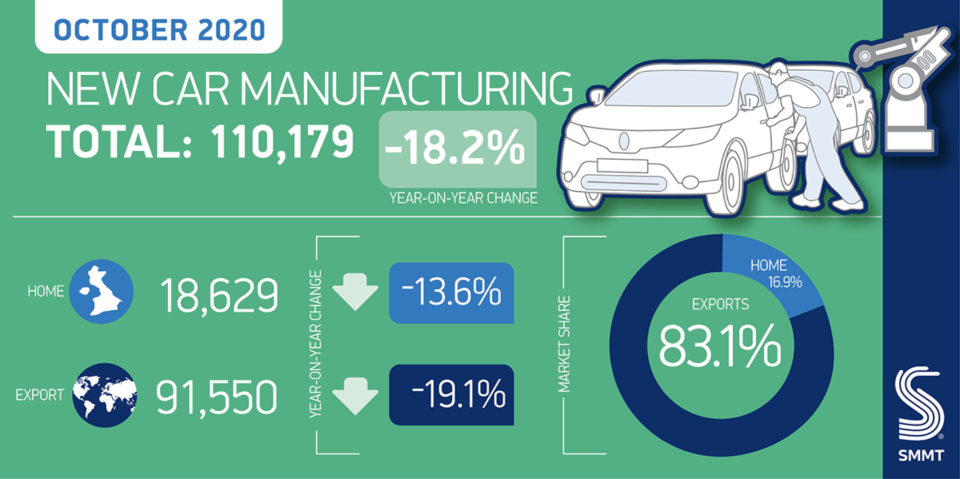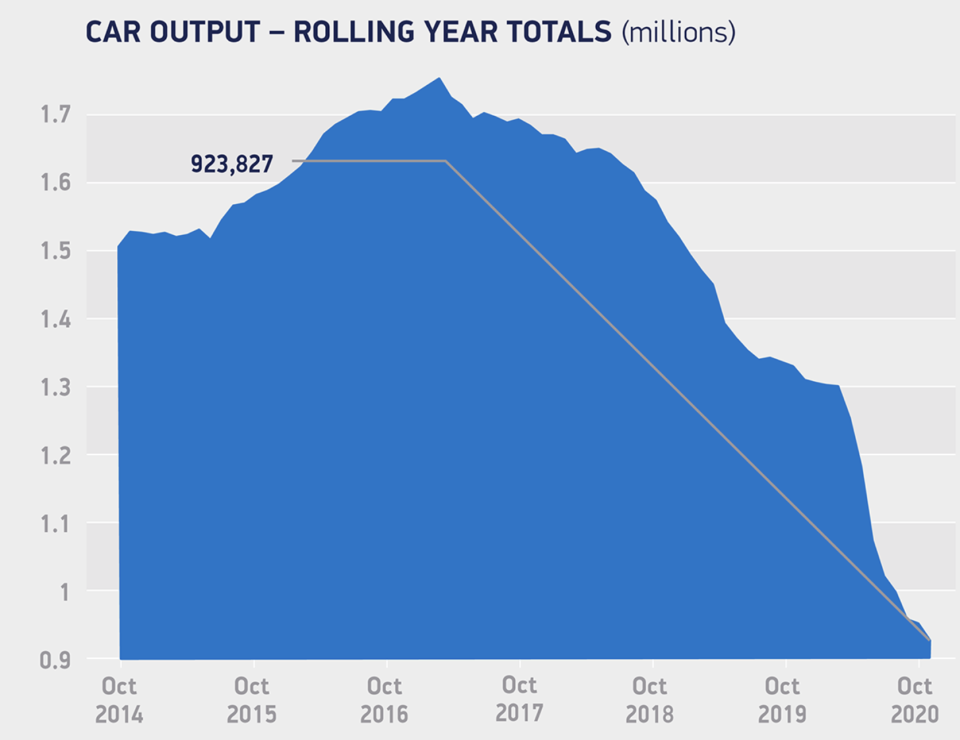Coronavirus: UK car output falls 18.2% in October as sector awaits critical Brexit deal
UK car production fell by 18.2% in October compared with the same month in 2019, according to the latest figures from the Society of Motor Manufacturers and Traders (SMMT).
Car plants in the UK produced 110,179 cars in October — 24,490 fewer cars than a year before. The decline reflects the impact of the coronavirus pandemic and further lockdown restrictions in the UK and abroad affecting demand.
Exports fell 19.1% overall — equivalent to a loss of 21,569 vehicles. Exports to key markets in the EU and US were particularly affected, with shipments to the US dropping by 26% and to the EU by 25.7%.
Exports to Japan and China were up 57.1% and 9.7% respectively, reflecting looser lockdown measures, but this was not enough to offset losses elsewhere.

Production for the UK market also fell by 13.6% to 18,629 units — equating to 2,921 fewer cars made for domestic buyers than in October 2019.
UK car output has plunged by 33.8% since January to 743,003 units, a year on year shortfall of 379,308 units worth £10.4bn ($13.9bn).
WATCH: Why can't governments just print more money?
The UK automotive sector is anticipating the agreement of a post-Brexit trade deal between the UK and the EU, as the transition period is due to end on 31 December.
In the event of no-deal Brexit World Trade Organisation tariffs will kick in and cost the automotive sector £55.4bn over the next five years, with annual production dropping below 1 million units consistently, according to the SMMT.
The SMMT predicts that even a “bare-bones” basic trade deal could cost the industry £14.1bn.

Mike Hawes, SMMT chief executive, also highlighted UK prime minister Boris Johnson’s plan to bring forward the ban on sales of new petrol and diesel cars and vans in the UK to 2030, from the current planned date of 2040 as “bad news” for the industry.
Hawes said: “These figures are yet more bad news for an industry battered by COVID, Brexit and, now, the unprecedented challenge of a complete shift to electrified vehicles in under a decade.
“While the sector has demonstrated its resilience, we need the right conditions to remain competitive both as a manufacturing nation and a progressive market.
READ MORE: UK car industry warns of £55bn blow from 'no-deal' Brexit
“Yesterday’s Spending Review recognised the need to invest in a green industrial revolution, but this must be at globally competitive levels and equal to the scale of ambition to keep this sector match fit.
“Above all, we must have a Brexit deal, one with zero tariffs, zero quotas and rules of origin that benefit existing products and the next generation of zero emission cars, as well as a phase in period that allows this transition to be ‘made in Britain’.”
WATCH: What is a no-deal Brexit and what are the potential consequences?


